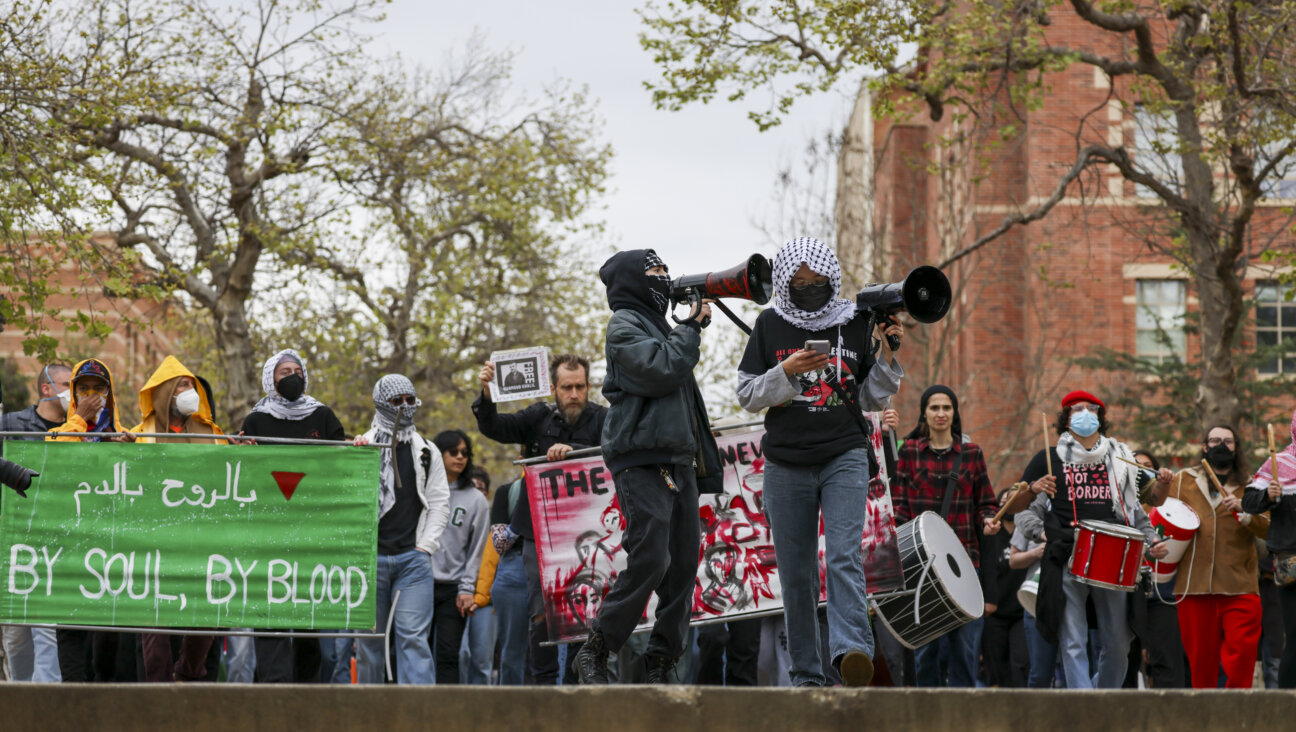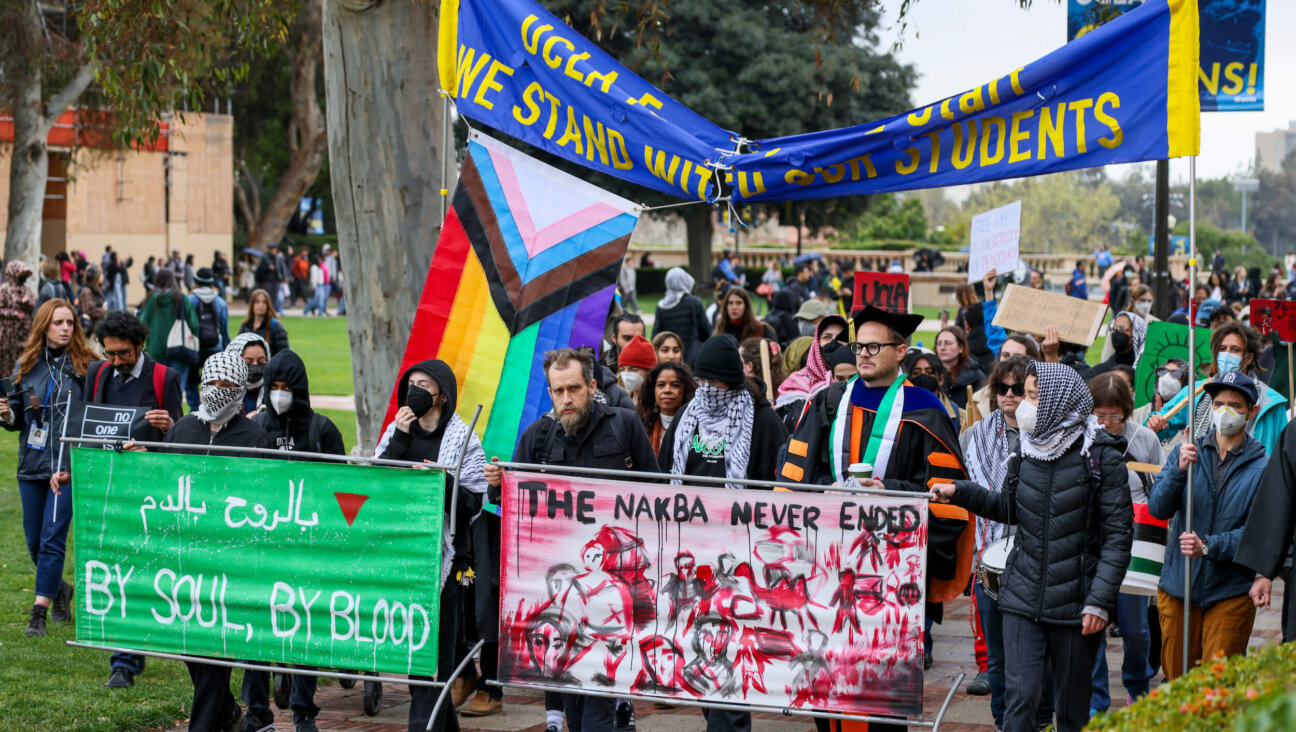Conservative Shuls Hint They’ll Leave United Synagogue Absent Big Reforms
A group of presidents of Conservative synagogues is threatening rebellion, and even possibly secession, if the Conservative movement’s congregational arm does not make prompt and dramatic structural changes, the Forward has learned.
In a letter addressed to the United Synagogue of Conservative Judaism’s president and to the organization’s professional head and board, the synagogue presidents accuse the USCJ of being “opaque,” disorganized and even vengeful, and demand serious changes within 90 days.
“We believe that the organization has become insular, unresponsive, and of diminishing value to its member congregations,” the presidents state in the letter, which was obtained by the Forward but has not yet been sent.
In the missive, the signatories hint that if their demands are not met promptly, their synagogues may ultimately withdraw support for the USCJ.
Those behind the communication say that a dozen congregational presidents have committed to signing so far, and that the ultimate hope is to attract anywhere between 25 and 50 synagogues. The presidents expect it to be sent around March 23.
The letter surfaces a little more than a week after a separate coalition of rabbis, cantors and synagogue presidents from 25 of the largest Conservative congregations in the country, calling itself HaYom, sent its own challenging letter to the USCJ’s leadership. That letter, though less specific in its demands, expressed similar dissatisfaction with the USCJ and requested a meeting with the organization’s leadership. Such a meeting has been scheduled for March 19.
Word of the more recent letter also comes just after the USCJ’s announcement that it had selected Rabbi Steven Wernick, a pulpit rabbi at a prominent Philadelphia-area synagogue, to be its new executive vice president, pending contract negotiations and board approval. Both HaYom and the Conservative synagogues’ presidents criticized the USCJ search committee that worked to fill the position as being too secretive.
The primary drafter of the presidents’ letter is Robert L. Rubin, treasurer of the large and influential Washington synagogue Adas Israel Congregation. Rubin said he began work on the letter after calling around to other congregations, beginning this past summer, and finding that none of them — large, medium or small — was pleased with the services they received from the USCJ. Adas Israel’s president, Edward Kopf, is a signatory.
The letter levels a series of charges against the USCJ, including that its actions are “controlled by a relative few,” that “there appears to be a culture of entitlement and intolerance on the part of the professional and lay leadership,” that complaints are met with “a fervent attempt to quash dissent” and that “the official governing bodies are so large and/or so insular that they are unresponsive or unworkable.”
It also requests a number of changes in the USCJ’s policies, demanding, among other things, that the USCJ publish its recent budgets and the contract of its current executive vice president, that it hold a series of open discussions for congregations to voice their concerns, and that it shrink and reorganize its governing boards. The letter sets deadlines for action on these items, ranging from 30 to 90 days.
In response to a description of the letter, the USCJ’s international president, Raymond Goldstein, said that he agreed with a number of the concerns raised. Among them are the need for greater transparency and the description of the organization’s governance structure as unwieldy. He said that he and others at the USCJ had worked to try to address these issues. He also said that a number of the demands, such as posting the budget online and holding town hall meetings, seemed reasonable. But Goldstein strongly disagreed with the assertion that the USCJ tries to quash dissent.
Although some in the Conservative movement have expressed hope that the selection of Wernick could set a new direction for the USCJ, it seems unlikely that it will satisfy this letter’s signatories. The letter says that the professional head of the USCJ should be a “Chief Operating Officer with proven successful organizational skills,” and Rubin said that the ideal would be someone who has significant experience running a large, multi-branch organization.
Wernick, 41, has been a pulpit rabbi since he was ordained at the Jewish Theological Seminary in 1996. He is currently the spiritual leader of Adath Israel in Merion Station, Pa.
Goldstein called the letter’s position on the role of the top professional “terribly parochial” and said that the search committee had taken management skills into account in choosing Wernick.
Rubin said that this letter was written separately from that of HaYom and that he sees the two efforts as distinct but complementary. He also said that HaYom’s concerns about the movement are broader and more philosophical, while those expressed in the presidents’ letter are more concrete and short-term.
Even as the presidents’ letter expresses a desire to work amicably with current USCJ leadership, it also lays out potentially drastic consequences if substantial progress is not made. The signatories write that they have “chosen to continue our support, both financial and otherwise, for the next 90 days.”
The missive continues, “Barring acceptable results within the next 90 days, a next step would be to energize the larger USCJ constituency to demand change on or before the convention in the fall,” referring to the USCJ’s biennial convention in December. “Finally, assessing our continued commitment to the existing organization, while an option, is our choice of last resort.”
While breaking off ties with the USCJ would be a dramatic step, it would not be without recent precedent. In April 2008, three large Conservative congregations in Toronto withdrew from the USCJ, complaining that they were not receiving adequate services.
Goldstein said he was open to working with the letter writers but didn’t like their confrontational tone.
“I would look forward to partnering with these people rather than have them feel it necessary to threaten,” he said.
A message from our Publisher & CEO Rachel Fishman Feddersen

I hope you appreciated this article. Before you go, I’d like to ask you to please support the Forward’s award-winning, nonprofit journalism so that we can be prepared for whatever news 2025 brings.
At a time when other newsrooms are closing or cutting back, the Forward has removed its paywall and invested additional resources to report on the ground from Israel and around the U.S. on the impact of the war, rising antisemitism and polarized discourse.
Readers like you make it all possible. Support our work by becoming a Forward Member and connect with our journalism and your community.
— Rachel Fishman Feddersen, Publisher and CEO




























